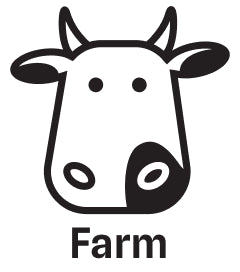
What is Hypo-allergenic Dog Food?
The variety of diet you choose to feed your dog will depend on their taste and what works for them. Some dogs have a food intolerance, if this is the case, then Hypoallergenic food for your four-legged friend might be worth considering.
The words Hypo and Hyper are often used to prefix other words; Hypo has the meaning of low or reduced, whereas Hyper means high or to increase. For example, if you were to describe your dog as hyperactive then they would live a highly active life. Whereas words containing low, including hypoglycaemia, relates to low blood glucose.
So, when we see the words Hypo-allergenic on pet food, it means that the dog is less likely to have an allergic reaction.
What is Hypo-allergenic dog food?
Hypoallergenic is a food suitable for dogs with allergies. This type of dog food is commonly free from wheat, beef and dairy. It sometimes can also exclude soya, colourings and artificial preservatives.
Some of the hypoallergenic diets on the market contain ingredients known as novel ingredients. These are ingredients which are less commonly used in dog foods. An example is pork or duck, which is used as a novel protein, alongside the use of sweet potato as a novel carbohydrate. Using novel ingredients can be beneficial for dogs who are sensitive to more common foods.
Some Hypoallergenic Dog Foods may also use Hydrolyzeda; a method in breaking down proteins to a much more sustainable level, so that they are too small for the dog’s body to identify them as an allergen.
What causes food allergies / intolerance in dogs?
It can take many months or years before your dog develops an allergic reaction to a particular type of ingredient in dog food, meaning food intolerances can occur at any age.
Unfortunately, once your dog becomes allergic to an ingredient, it is likely to be terminal.
The most likely allergic reaction your dog will receive is from the protein source in the food, with the most common food intolerance in dogs being beef, wheat, and dairy products.
What is the difference between food allergy and food intolerance?
You must remember that food allergies and food intolerance are not the same thing.
A food allergy is when your dog’s immune system incorrectly identifies a certain ingredient in the food as harmful, meaning your dog’s immune system is reacting to an allergen.
A food intolerance is a digestive problem rather than an immune response. A food intolerance occurs when a dog’s digestive system is unable to digest a specific ingredient.
How do I know if my dog is sensitive to foods?
The most common signs of food intolerance in dogs are digestive upsets or skin irritation.
The main symptoms you will see include vomiting/diarrhoea, frequent scratching (which can lead to hair loss), red and inflamed skin, ear problems and poor growth in younger dogs.
Some dogs may also show abnormal behaviour, such as lethargy and loss of interest in food and exercise.
PLEASE REMEMBER: Some symptoms of food allergies are like those of other serious conditions, so please consult your veterinarian should you notice any of these signs.
How do I choose a hypoallergenic dog food?
The main aim in managing any food allergy is to find and avoid the ingredient that is responsible for the causing the reaction.
For correct diagnosis and treatment options, always consult your veterinarian and ask them to recommend the best food for your dog’s food allergies.
Your veterinary surgeon may recommend a Dietary Elimination Trial; this means removing the ingredient from your dog’s food which you think is causing the allergy. The best way to do this is do use a Hypoallergenic Dog Food Diet – meaning the food you give should be balanced and contain as few ingredients as possible.
During the Diet Elimination Trial, it is extremely important to only feed your dog the prescribed food. The most frequent reason why diet food trials fail is because the owner feeds other foods alongside the diet, naturally it is then difficult to see which ingredient could be casing an issue. The elimination test is usually in place for about 12 weeks, to see if there is an improvement or not.
There also are commercial skin and blood allergy tests on the market, and your vet may recommend starting there too.
Remember, a good quality Hypoallergenic Dog Food often results in health benefits and helps reduce the risk of health problems, such as obesity, skin and ear infections and digestive upsets.
What brands of dog food make hypoallergenic?
There are many dog food manufacturers on the market that provide us with Hypoallergenic Diets.
These include Royal Canin Hypoallergenic, Harrington’s Hypoallergenic, Skinners Hypoallergenic and several others.
Always speak to your veterinary surgeon before changing to a Hypoallergenic Diet.
Your veterinary surgeon can advise on the best dietary choice for your dog, based on age, life stage and health.
Is there a certain breed of dog or lifestyle that causes allergies?
Sadly not, there is no identifiable trend, so any dog with any lifestyle can suffer from an allergy to their food.
However, evidence has shown that there are a few breeds that seem to have an increased allergy risk; these include Cocker Spaniels, Retrievers, West Highland White Terriers, German Shepherds and Dalmatians.
Is there a wet dog food Hypoallergenic?
There is a wide range of commercial wet and dry foods on the market, should your dog a Hypoallergenic Diet. The question of which dog food (wet or dry) very much comes down to the need and preferences of the individual dog and the owner.
If your dog is showing signs of allergies, talk to your vet before making any changes to their food.
If you would like more information on transferring your dog’s nutritional needs from Regular dog food to Hypoallergenic dog food, here at Petsmagnet we are happy to discuss the wide range of feeds for pet and working dogs alike, whatever their life stage.







Leave a comment